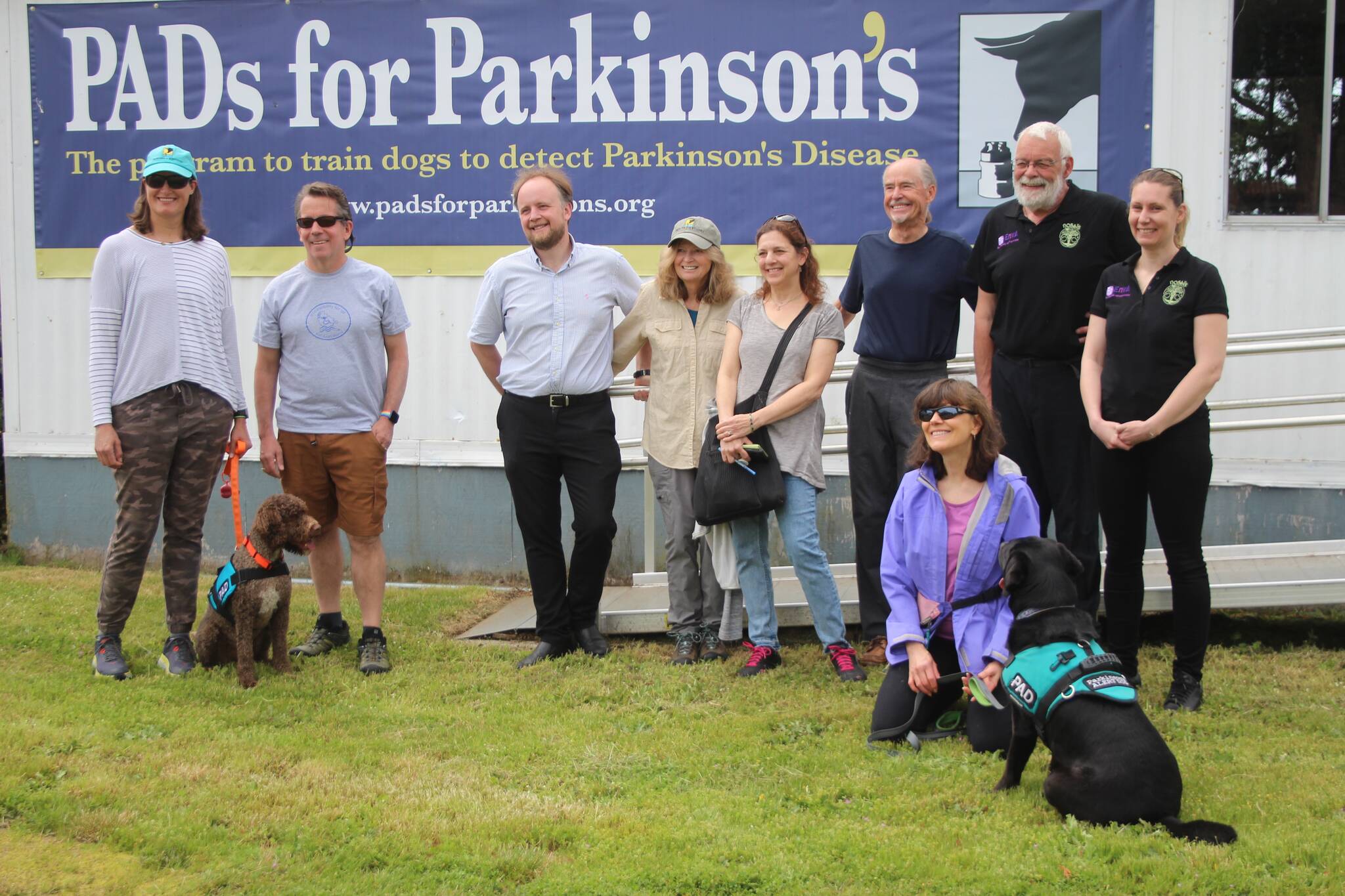Submitted by PADs for Parkinson’s.
PADs for Parkinson’s, the first program anywhere to train dogs for the detection of an odor associated with Parkinson’s Disease, is excited to announce that in June 2023, the program will move to its new home at Nosais, a nonprofit research department within the National Veterinary School (NEVA) of Maison-Alfort, France. Established in 1775, and encompassing 11 acres, NEVA is the French public research institute of scientific research and higher education for veterinary medicine with 1000 aspiring veterinary students, a teaching staff of 400 veterinary science specialists, and eight research laboratories. Here, PADs will finally have the needed room to stretch, run and expand to its full potential.
Since 2016, PADs has been raised, fostered and groomed on San Juan Island. During these past seven years, and only with the tremendous supporting efforts of over fifty local volunteers, hundreds of sample donors, 35 dedicated and passionate canine/handler teams, and a giving, caring community, PADs has fulfilled its three-fold mission of training dogs to detect an odor associated with Parkinson’s Disease, establish reproducible training protocol, and assist research science in the quest for the cause and cure for Parkinson’s Disease.
Now for the benefit of the millions of people worldwide facing Parkinson’s Disease, it is time for PADs to publish the finding of its many years of carefully-collected canine detection research, and then formalize and encourage efforts for this research to go forward at Alfort. It is planned that beginning in June, the PADs program will be under the direction of longtime NEVA Professor Dominique Grandjean, DVM. Professor Grandjean directed the first program to publish proof of canine detection of Covid-19 and has published numerous scientific papers in the growing new field of medical canine detection.
Regarding PADs, Professor Grandjean had this to say, “The Nosaïs team of the National Veterinary School of Alfort is honored and excited to continue building upon the ground-breaking detection research already established by PADs. We will continue the work and put forth all our efforts into providing the new possibility of early detection of Parkinson’s Disease through canine olfactory detection, thanks to the marvelous pioneering work done by PADs.”
At this time, we wish to gratefully acknowledge the tremendous effort and giving spirit of the many hands and hearts of the San Juan Island Community Foundation, the numerous Island volunteers and the many individuals who have supported and helped to raise PADs to a level of international interest and acceptance. Additionally, as we turn the page to the next chapter, we extend our very deep gratitude to the PADs’ sample donors and supporters who are battling Parkinson’s Disease. You remain the inspiration for the work we do. And the work to come.
On behalf of the entire PADs team, we remain grateful and honored to be a thread in the fabric of an organization that continues to work for human health. Here and across the Atlantic.
With gratitude,
Lisa Holt and Richard Lind on behalf of the Team of PADs
Lisa Holt, Director of Canine Detection (sanjuanlisa@gmail.com) and Richard Lind, Board President (ralind1949@gmail.com)
www.padsforparkinsons.org



